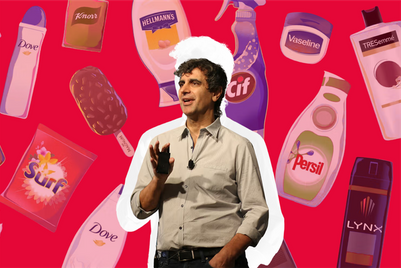
As 2015 nears its end, Campaign Asia-Pacific is reviewing the year by featuring one best-of (or worst-of) list each day. We've got 12 days' worth of the biggest deals, pitches, launches and people moves; the best and worst campaigns; and the oddest stories and quotes we've heard. Click here for all our year-in-review features, from not only 2015 but past years as well.
We're kicking off this year's best-of extravaganza with a reader favourite: the top PR disasters. This is always a hotly contested category with no shortage of potential winners. Heck, even today an exploding Ford in Australia (while being driven by a journalist, we might add) came on the scene as a potential inclusion.
Here, in no particular order, are the five biggest PR disasters of 2015. Whether self-inflicted or out of anyone's control, these situations had the organisations involved scrambling to explain themselves or at least mitigate the damage.
GrabTaxi’s boob move
A noble cause to raise awareness of breast cancer was completely undermined by a slogan pilloried for being grossly insensitive. "Love boobs? So does cancer" did not go down well on Twitter, forcing GrabTaxi into a swift apology. The company also thought #GrabItBeatIt was a sensible campaign title, and threw in a YouTube video entitled “What if boobs don't [sic] exist?” We wish this campaign hadn't.
Toyota comms chief in prescription-drug incident
Losing your global head of communications to a drugs scandal seems like a disaster straight out of a soap opera. And yet that’s what happened to Toyota in Japan earlier this year. Julie Hamp resigned from Toyota after 57 tablets containing oxycodone, which is deemed a narcotic in Japan, were found in a package she allegedly sent to herself from the US. She was later released without charge.

Taco Bell’s re-entry into Japan: Lost in translation
One would think that a critical part of re-entering a key new market with a different language was to have your relaunch fully bulletproof in that local language. Yet Taco Bell missed the boat in Japan, with its ‘Crunchwrap Supreme-beef’ being translated as ‘Supreme Court Beef’, and ‘cheesy chips’ being named ‘yasuppoi’ chips, which actually suggests cheapness or poor quality. Twitter had a field day, and Taco Bell had to push the reset button, suspending its Japanese website temporarily.

Sneezing transmits HIV, according to Indonesian health posters
An outrage on Twitter within hours, and rightly so. How Indonesia’s health ministry printed and then distributed hundreds of posters mistakenly saying HIV can be transmitted through sneezing, swimming and mosquito bites remains a mystery. The posters made it onto commuter trains in Jakarta with the all-important word ‘cannot’ being swapped for its opposite, ‘can’. The ministry said it was “an honest mistake” by the printing company, and quickly sought to take down the posters. But critics slammed the authority for further damaging public opinion over a much-stigmatised disease.

(Trygve Utstumo/Flickr)
Delhi bans Uber after shocking rape claim
Of all the controversy surrounding Uber’s existence and entry or banning in various markets, the most concerning issue remains passenger security. Last December the city of Delhi banned Uber after one of its drivers was accused of raping a female customer. CEO Travis Kalanick said the incident was “horrific” and the company would “do everything, I mean everything” to bring the offender to justice. But the damage was well past done by then.

You may also enjoy:
Our US and UK colleagues have also just published their own lists of brand and PR fails:
- UK: The top 10 marketing mishaps of 2015
-
US: Ten brand fails of 2015 that haven't hurt the brand (yet)
See all year-in-review features





.jpg&h=334&w=500&q=100&v=20250320&c=1)


.png&h=334&w=500&q=100&v=20250320&c=1)


.jpg&h=334&w=500&q=100&v=20250320&c=1)


.jpg&h=268&w=401&q=100&v=20250320&c=1)

.jpg&h=268&w=401&q=100&v=20250320&c=1)


